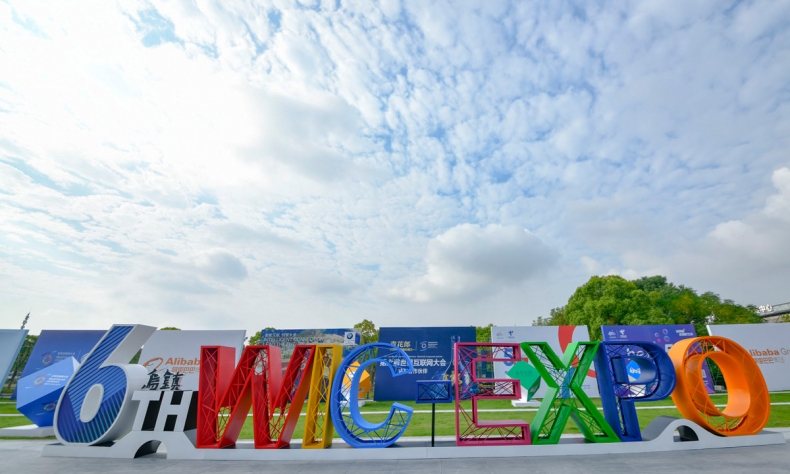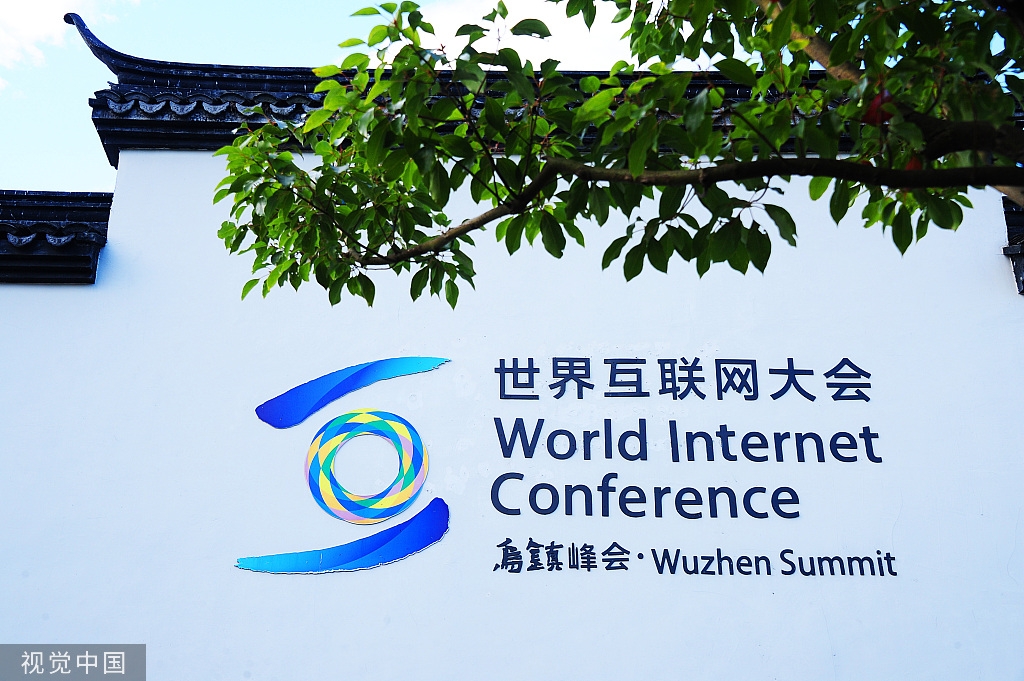
A Shared Future in Cyberspace
As the internet turns more and more into a place governed by algorithms, which work to boost engagement without differentiating between healthy and unhealthy practices, there is a growing need for communal efforts to make it safe.
With the world’s largest number of internet users and the largest volume of online retail sales, China is carving out a distinct path in digital technologies. And with its progress, it is building a shared future in cyberspace, taking partners along on the path that has already included these milestones.
From October 20 to 22, attendees of the 6th World Internet Conference will gather in the eastern river town of Wuzhen for a host of activities aimed at fostering cooperation in the tech industry. As global decision-makers — government and private alike — engage with each other, perhaps they will come to a realization that we are all headed in the same direction.

The focus of the conference is building a community with joint stakes in the future of cyberspace, with the 20 planned sub-forums centering around artificial intelligence (AI), 5G and industrial digitalization, among other topics.
China’s internet landscape boasts extreme adaptability and flexibility and evolves at a speed that even the best of industry observers find it challenging to keep up with.
As we are seeing a protectionist trend from Western circles, some experts like former Google CEO Eric Schmidt fear a split of the digital world into two parts. Web leaders must endeavor to avoid this schism, as it goes entirely against the agenda of bridging the developed and the developing world.
To this purpose, upholding a transparent global system for internet governance is essential. China is currently pursuing four principles in this regard: respect for cyber sovereignty, maintenance of peace and security, promotion of openness, and cultivation of good order.
In light of these principles, a plan launched by the Cyberspace Administration of China (CAC) is working to enhance the country’s online participation and bringing nations closer to encourage a multilateral governing system. This International Strategy of Cooperation on Cyberspace seeks to take on challenges peacefully by adopting a win-win approach and abiding by the UN Charter.
Experts from over 70 countries will interact at the upcoming conference to draw out cooperative strategies. This conclave of government officials, business executives, non-governmental organization figures and award winners could be instrumental in ironing out differences among the present parties.
Another forum highlight emphasizing its commitment to union is the unveiling of 15 projects selected by international consultants from a pool of candidate projects solicited in June, which have brought together local and foreign enterprises, universities and companies in the fields of AI, 5G, cloud computing, and digital manufacturing.
Similarly, a competition dubbed “Straight to Wuzhen” will feature innovative and cooperative ideas from around the world, with an emphasis on entrepreneurship.
Besides the conference, other initiatives are also underway to cultivate multinational collaboration. The Digital Silk Road is a venture that underpins the Belt and Road Initiative with cutting-edge technologies and primarily involves the promotion of the digital service sector, as endorsed by the International Cooperation Center of the National Development and Reform Commission.
Primarily promoting the digital service sector, the Digital Silk Road supports e-commerce, internet finance, smart cities, and telemedicine by integrating computing, big data, AI and blockchain facilities across borders. Several countries have signed memorandums of understanding with China and a majority of them are finalizing their plans.
As the internet turns more and more into a place governed by algorithms, which work to boost engagement without differentiating between healthy and unhealthy practices, there is a growing need for communal efforts to make it safe.
Earlier this month, the CAC released a draft of regulations on internet management for public feedback. In an example for the world, the draft regulations ask web-based information service providers to introduce or improve manual intervention mechanisms and avoid over-reliance on algorithms.
The World Internet Conference is a valuable opportunity for stakeholders to converge and establish platforms where they can collectively solve the issues affecting the international system of information exchange. The attendees should, therefore, take full advantage in order to build a community that can address mutual concerns and build a shared future along the way.
Daniel Hyatt is a Pakistan-based freelance journalist and commentator on modern China.
Opinion articles reflect the views of their authors only, not necessarily those of China Focus.
 Facebook
Facebook
 Twitter
Twitter
 Linkedin
Linkedin
 Google +
Google +










